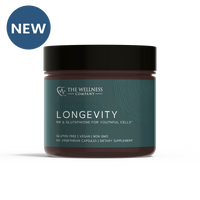Brain Gains: How Exercise Enhances Cognitive Health at Every Age

When many of us first delve into the world of health and fitness, it’s more about vanity than longevity. We care more about looking good than we care about feeling good, or improving our health. But while it might start out being all about the gains, as we grow older, a host of other benefits begin to emerge, such as the profound impact of exercise on our bones, our hearts, and our brains. This last critical benefit - the effect of exercise on our brain health - will be the focus of today’s article.
When it comes to cognitive health, in 2023 we're staring down a daunting statistic: over 50 million people worldwide are living with dementia, and by 2050, that number is expected to triple. And while the pharmaceutical industry has poured billions into the search for a magic pill, the results have been, to put it mildly, underwhelming.
Now, we’ve always been big believers in the power of evidence-based approaches, regardless of whether they come in pill form or not. And a recent study has shed some light on something that many of us in the fitness community have suspected for a while: exercise isn't just good for your body; it actually preserves your cognitive function, and even helps you grow new brain cells.
The study in question took 132 cognitively normal individuals, aged between 20 and 67, and divided them into two groups. One group was put through a 6-month regimen of aerobic exercise, in which they did 40 minutes of heart-pumping exercise, four days per week. The other group did some stretching and toning exercises for the same amount of time. The results? Those in the aerobic group saw a huge boost in what's called their executive function. Think of executive function as a proxy for the efficiency of the brain's command center, governing tasks like planning, attention, and problem-solving. This is one of the main qualities that declines as we age (in addition to memory). At age 40, participants in the aerobic group not only prevented a decline in this area, but actually saw their executive function improve by a notable margin. By age 60, the improvement was even more pronounced.
But here's where it gets really interesting. The aerobic exercise group also showed an increase in cortical thickness in a specific region of the left frontal lobe. Why is this a big deal? Because it literally shows that exercise has the capacity to grow your brain, even as you age, as crazy as that may sound. Cortical thickness is powerfully linked to cognitive health, and this change suggests that regular aerobic exercise can benefit brain health in adults of any age demographic.
The Bottom Line
What’s good for the body is good for the brain. The evidence is clear: regular aerobic exercise is among the best things we can do for our cognitive health. So, whether you’re 20 or 60, lacing up those sneakers and getting your heart rate up isn’t just about looking good, or staying mobile. It’s about keeping your mind sharp, agile, and ready for whatever life throws your way.
Video: Dr. Rhonda Patrick delves deeper into the mechanisms.
References
Stern, Y., MacKay-Brandt, A., Lee, S., McKinley, P., McIntyre, K., Razlighi, Q., ... & Sloan, R. P. (2019). Effect of aerobic exercise on cognition in younger adults: A randomized clinical trial. Neurology, 92(9), e905-e916.














